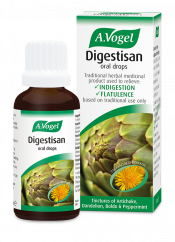Is it what you eat or how you eat?
No doubt, most of you will have experienced an unpleasant bout of indigestion along with the added discomfort of acid reflux or heartburn after eating a meal. Yes? It is then very easy to automatically associate this uncomfortable feeling with the particular food you have just eaten. I’m sure many of you are guilty of declaring, “Oh it must be that curry causing me this horrendous pain, I can’t handle spice,” or, “I can’t handle certain fruit or vegetables as they are just too acidic for my tummy.”
In some cases this may be true and some people are certainly more sensitive to particular foodstuffs than others.
However, have you ever considered that how you eat or drink might be having an impact, rather than just the food itself? Employing good eating habits is really important and after trying some out, you might be surprised to see the difference it can make to your digestion.
Good eating habits
Meal time is an important time which should be treated with some respect. We are lucky enough to have acquired a tasty source of energy. We are able to effectively fuel our bodies with nutrient-packed food so we can survive the rest of the day.
However, it’s not just the food choices we make that are important – how your body processes this food is also critical. You actually have some influence as to how you are able to utilise the nutrients in your food and you should be aware of this in order to make the most of it!
Consider employing some of these eating habits to help improve your digestion, get the best out of your food and make nasty symptoms such as indigestion and heartburn a thing of the past.
- Take your time and chew your food properly – The more time you spend chewing your food (you should aim for around twenty times per mouthful) the larger the surface area available to your digestive enzymes. Digestion starts in the mouth where an enzyme called salivary amylase targets carbohydrates, beginning to break them down into their simple units (sugars). So get chewing and your stomach won’t have such a tough task ahead of it. As you eat slowly you are also less likely to over-indulge. Too much food will alter the pressure inside your stomach and you are more likely to suffer from indigestion and heartburn as a result
- Don’t drink water with your meals – We are all for drinking water, of course, but gulping down lots of liquid with your meals could actually be detrimental. Your stomach releases stomach acid which is a precise formulation of hydrochloric acid and other constituents, specifically designed to break down your food. If you dilute your gastric juices with lots of excess water they won’t work as efficiently. Avoid drinking water 20 minutes before a meal and up to an hour afterwards in order to allow your stomach acid to do its job
- Sit up straight – Your stomach is lined with specialised cells that are in charge of releasing the necessary juices for digestion. Slouching means your stomach is crumpled, your parietal cells (responsible for releasing hydrochloric acid) can become squashed and their secretory action may be impaired. Sit up straight and let everything flow freely as it should. Wearing very tight clothes can also constrict your stomach so avoid very tight belts or jeans a size too small! Also, don’t lie down whilst, or soon after eating; this helps prevents the acid physically travelling backwards towards your oesophagus. Try elevating your head slightly in bed if you have trouble with heartburn at night
- On that note, try not to eat late at night – Eating nearer bed time means there is more chance that your stomach will still be digesting your last meal as you go to lie down – this could give rise to heartburn. Gastric emptying can take anywhere from between 2-5 hours depending on the composition and volume of your latest meal. Ensure that you eat several hours before bed or try eating your biggest meal of the day at lunch time.
Lifestyle advice
As well as habits specific to how you eat, there are some more general lifestyle habits that may be contributing to your heartburn:
- Manage your weight – Although people of any size can suffer from heartburn, the more overweight you are, the greater the risk. The exact mechanisms aren’t completely understood but it is thought that excess weight around your abdomen can affect the pressure inside your stomach. This can relax the lower oesophageal schincter (LOS) which can result in acid splashing back from the stomach into the oesophagus. In an attempt to overcome these issues try consuming smaller portions. Larger portion sizes make us more susceptible to heartburn and portion control is an excellent first step in managing your weight
- Don’t eat stressed – Feeling stressed and eating a large meal often doesn’t really go hand in hand. You may notice when you are overly stressed your appetite is affected. During periods of stress your body goes into fight or flight mode and the attention is diverted away from the stomach – digesting a big meal in an emergency isn’t a priority, right? This means your digestive system is temporarily hindered as the focus is on your heart, lungs and skeletal muscles. Calm down, relax and aim to enjoy your food in a stress-free environment in order to benefit from optimal digestion. Try our Stress Relief Drops or adopt some relaxation techniques to help you begin coping with stress. Read our page on heartburn and stress for a better insight into how the two are connected
- Think twice about adding antacids into your regime – Antacids are often taken soon after a meal when it is suspected you have too much stomach acid. However, excess stomach acid isn’t always the issue – the opposite may be true and in fact you don’t have enough! Antacid medication may temporarily neutralise the acid irritating your oesophagus in episodes of heartburn but in the long-term, you could be making the problem worse if your levels of stomach acid (vital for many functions) become diminished. Consider trying some of our home tests for determining if you have too an imbalance in your stomach acid.
So try some of our top tips and your heartburn could be a thing of the past! Your tum will thank you for it.
Top tip: Try Silicol® gel during a flare up of heartburn. Silicol® gel contains silicic acid which acts as a protective barrier for the digestive tract, soothing and calming the walls of your oesophagus.








